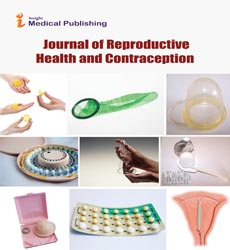Abstract
Relevance of community Based Institutions for Ending Harmful CulturalPractices Related to Adolescent Sexual and Reproductive
Harmful cultural and discriminatory practices deeply rooted in social, cultural and religious landscape of Nepal; are major barriers to promote sexual and reproductive rights of adolescent’s population. The attitudes and prejudices of vanguard citizens are strongly detrimental to avert such practices. The objectives of study were to gauge attitude and readiness to abandon harmful cultural practices, to understand to what extent citizen’s perception was influenced by social norms and to assess whether the community based institutions are making any differences in tackling harmful practices in the community. A opting a cross- sectional survey, five categories of Community Based Institutions namely namely Ward Citizen Forum, Citizen Awareness Center, Youth Network, Adolescent Girls Circle and Women Group were involved in the study. The social acceptance or resistance related to adolescent sexual and reproductive health were assessed by using Likert Scale of rating scores ranging from 1 to 5. According to the average rating scale, the majority of citizens showed strong disagreement to allow adolescent girls to go school during mensuration, allow to stay inside home during menstruation and open discussion on sexual & reproductive health related matters between parents and adolescent. Likewise, citizens have strong disagreement to allow girls and boys to make voluntary decision for marriage, allow unmarried adolescents to use contraceptive and abortion services by unmarried girls. This study evidences that that there is strong force of the social norms against adolescent sexual and reproductive health of adolescent. Similarly, the study shows that community based institutions have launched some social behavior change campaign - highest response (29.6%) on campaign for open defecations free, second most interesting issue is citizens have conducted advocacy campaign to child marriage (18.3%). Further. Campaign for free health service (17.8%) and campaign against domestic violence (17.5%) and against banishment during mensuration and delivery (16.6%). The study revealed tha that Community Based Institutions are highly relevant for addressing harmful cultural practices through citizen engagement and social accountability.
https://transplanthair.istanbul
https://hairclinicturkey.co
https://hairclinicistanbul.co
https://besthairtransplant.co
https://hairtransplantistanbul.co
Author(s):
Giri Prasad Panthi
Abstract | PDF
Share this

Google scholar citation report
Citations : 201
Journal of Reproductive Health and Contraception received 201 citations as per google scholar report
Journal of Reproductive Health and Contraception peer review process verified at publons
Abstracted/Indexed in
- Google Scholar
- China National Knowledge Infrastructure (CNKI)
- WorldCat
- Publons
Open Access Journals
- Aquaculture & Veterinary Science
- Chemistry & Chemical Sciences
- Clinical Sciences
- Engineering
- General Science
- Genetics & Molecular Biology
- Health Care & Nursing
- Immunology & Microbiology
- Materials Science
- Mathematics & Physics
- Medical Sciences
- Neurology & Psychiatry
- Oncology & Cancer Science
- Pharmaceutical Sciences


